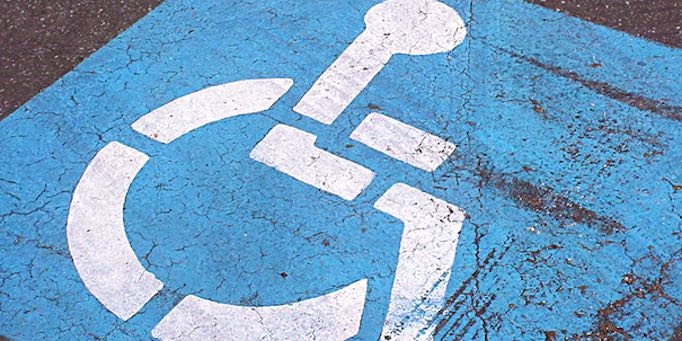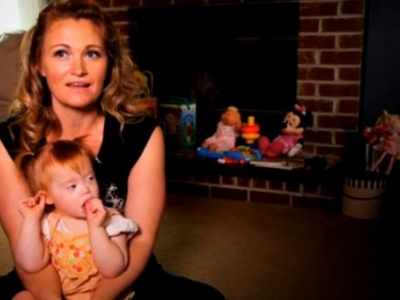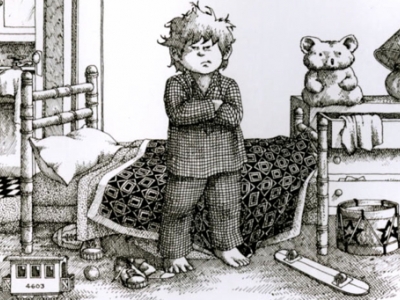
How to teach your child about disability
Children are naturally curious about people who are different to them. How should parents respond to their questions?
Kids are beautifully and wonderfully curious. They notice things and refreshingly, tend to ask or say exactly what they’re thinking, ignoring what we think is politically correct.
Picture this...
- You’re walking back to the car with a trolley full of groceries, your 2-year-old sitting in the trolley seat and your 4-year-old following behind, when he suddenly says (quite loudly), ‘Why can’t he walk’, pointing over at the man opposite you sitting in a wheelchair.
- Or your 8-year-old daughter comes home from school and tells you there’s a new girl in her class - she has a long stick with a ball on the end that she uses when she moves around and she can’t see. The new girl is cool, but how do you play with her if she can’t see?
- Or your 17-year-old son has a friend who’s been in a car accident and is suffering from ongoing effects of a brain injury. He looks the same but his personality has changed, he can’t concentrate for long periods of time and that’s just the start! Will he even be able to finish school? Will he stay like this? What does this mean for their friendship?
Maybe you can resonate with one of these experiences? Maybe you’ve never had to broach the subject of disability at all with your child. Maybe your own child has a disability and it’s simply part of normal life. Maybe you’ve had to talk about a disability that isn’t immediately obvious to your child.
What do we say in those situations? Are we stumped for words? What if we say something wrong? Do we encourage their questions or brush them aside? How do we teach our children about disability? How do we talk about it?
Reflecting on my own first-hand experiences growing up in a family where disability was a normal part of our lives, and through ministry with children and families, here are some practical principles that might help as you begin thinking through how you might do this in your own families (how to answer the inevitable ‘why?’ question we’ll save for another post).
1. They are loved
They are a person first, not a disability. And as a person, they are loved by the same God who loves us and sent his Son to die for us (Rom. 5:8). Talk about who they are in relation to God. Help your kids find the similarities between them, beginning with God first.
2. Focus on the whole person
Who are they? They are more than their disability. Our culture tells us our worth comes from what we can do for our society. The Bible tells us our worth comes from our loving Creator who made us to be in relationship with him (Col. 1:15-20). Our worth comes from God, not ourselves. As you talk to your kids remember to talk about the person as a whole. Use their name. What’s their personality like? What are their likes and dislikes? How are they funny? Work hard to find the joy that God brings to your life through them.
3. Name it
Name the disability. What is it? Be honest - say the truth simply, clearly, and appropriately for their age. And if you don’t know - why not find out together?
4. Be intentional
Make friends with people who have a disability and make it a normal part of your life. Teach your children to be comfortable around people who are different to them by the example you give them. Model it. Whether they are a family friend or your child’s friend, talk to them or the child’s parents and encourage them to be ‘teachers’ to your family as you share life together.
5. Embrace the unexpected
Those questions or comments that just come out unexpectedly - make the most of them! The curiosity of children and the experiences they have can be a blessing in disguise - they force us to acknowledge people in front of us and they prompt us to talk about an issue that is often brushed aside. Take those moments and turn them into truth-telling, teaching moments. Use them as reminders of God’s love and discovery of the beautiful difference He has given us.
But what about that unexpected moment when your child asks that seemingly ‘inappropriate’ question in front of the person or when people are looking? Remember other people are far more forgiving of children than we give them credit for.
If you can, why not go and introduce yourselves to the person and ask to hear their story? Most people will be more than happy to share. If that’s not possible, stick to simple clear explanations appropriate to your child’s age and point your kids back to the gospel truth that everyone, including the person who has a disability, is loved and cherished by God. You might even be able to go further and encourage your kids to imagine what it might be like to be that person they just walked past - What might they like to do? What would be fun about having your own wheels? What might be hard? Helping your child understand someone else’s life can help them accept, love and serve others who are different to them, as Jesus taught us to.
As your children grow up, they’ll have different questions for you to face together: embrace them. Go on the journey of discovery with them. If you don’t know the answers, ask for help and find out together. God teaches us so much through people who are different to us, often by showing us how much we need Jesus. Remember we have Jesus in common, embrace the challenges in difference and enjoy the journey as you teach your child about disability.
Amy Brown loves Jesus, kids, friends and good coffee, and life is great whenever all those things combine! She currently lives in Newtown finishing off her studies at Moore Theological College, while also teaching young people about Jesus at St Swithun’s Anglican Church in Pymble.
For more articles from Growing Faith, subscribe to our monthly e-newsletter.
To hear about the latest books and resources from Youthworks Media, subscribe here.







